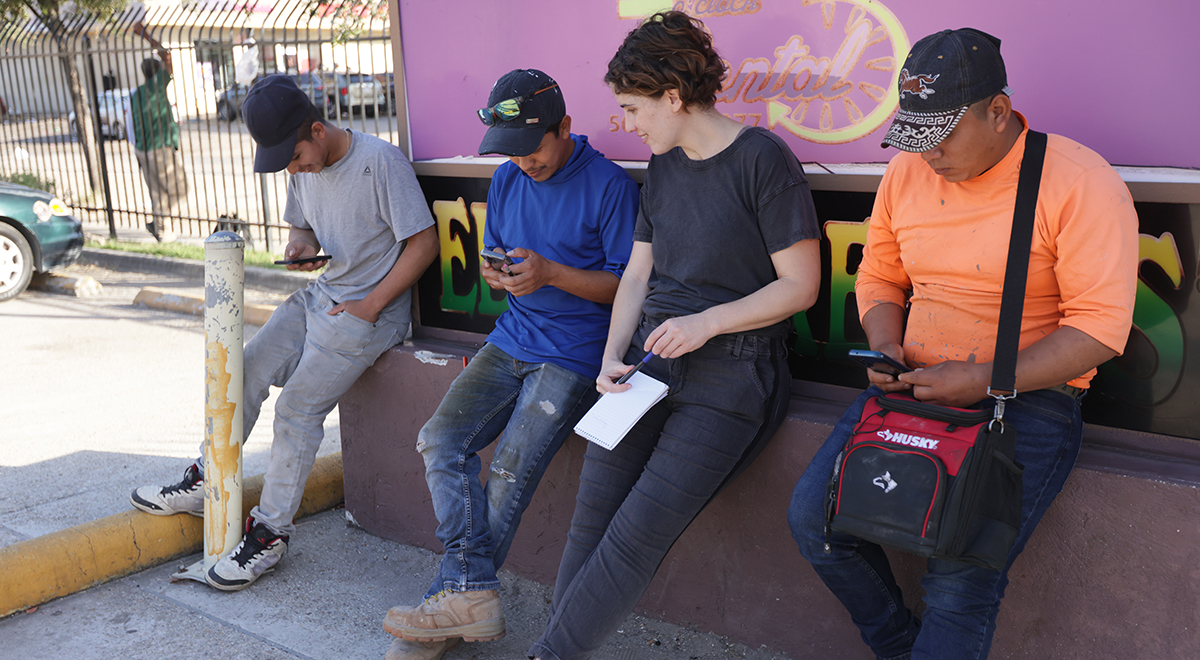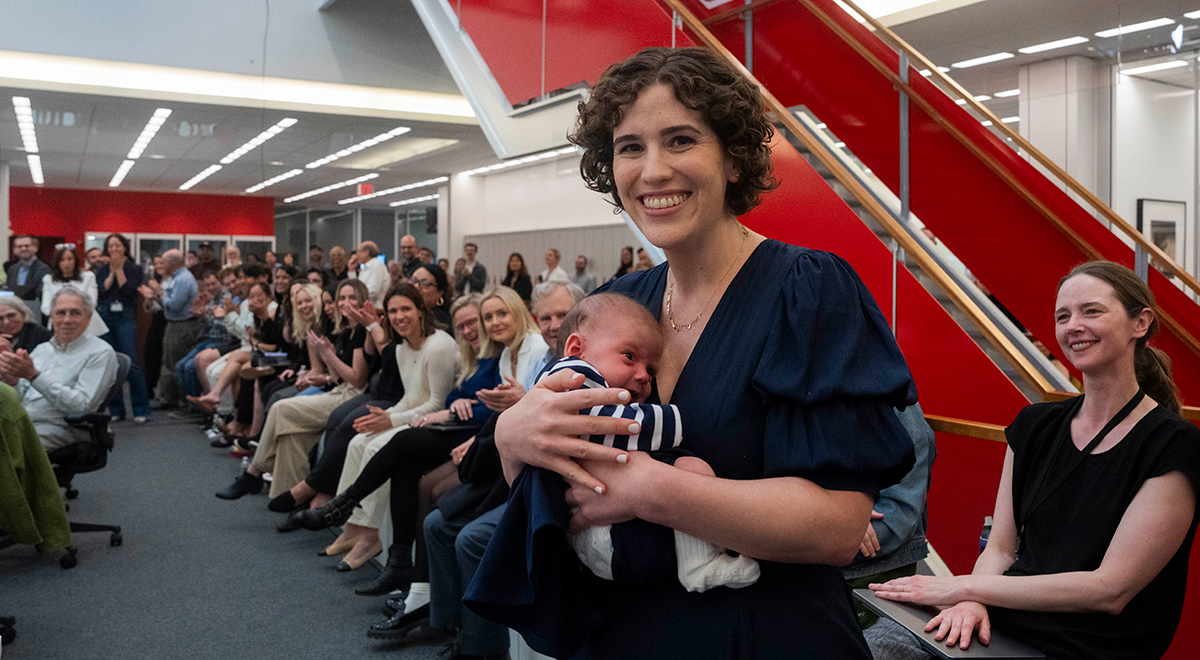Dreier ’08 on Pulitzer Prize-Winning Investigative Series
A few years ago, New York Times investigative reporter Hannah Dreier ’08 obtained a swath of data on the locations of children immigrating to the United States without their parents — a demographic easily targeted by unscrupulous employers. She dialed around in search of anything that could point to whether these children were working underage, but each call resulted in the same conclusion: no one claimed to know anything.
So, she put down her phone, hopped on a plane, and traveled where the data pointed her. Within a day or two at each location, she found and interviewed migrant children working shifts at factories after school or, at times, in place of it. “The only way you could get to those kids was to go and sit outside of a factory and watch the midnight shift change,” she said. “. . . Once you were there, it was pretty easy because a 12-year-old doesn’t look like a 19-year-old, and they’re obviously kids coming in and out of these factories and day-labor sites.”
For publishing a six-story series outlining a system that capitalizes on the labor of young teens away from their families in a foreign land, Dreier was awarded the 2024 Pulitzer Prize in Investigative Reporting. Over the course of a large-scale investigation, Dreier spoke with hundreds of migrant child workers across 20 states, hundreds of lawyers, social workers, teachers, and law enforcement personnel to help bring a systemic problem to light: well-known companies like Ford, General Mills, and Perdue contracted with companies that violated labor laws by employing children and, at times, put them in dangerous situations.
“Eventually, I talked to people in all 50 states who confirmed that they were seeing this,” said Dreier, a College of Letters major while at Wesleyan.

United States immigration law allows children from some countries to seek asylum in the United States without their parents. The children are allowed to come into the country if they have a sponsor — a relative or other adult willing to look after them. But according to Dreier’s reporting, many migrant children have ended up with sponsors who charge them for every dollar spent to get them to the United States — sometimes with steep interest — which forces the children to search for work to pay back their debts.
The available work, Dreier said, can be dangerous — making auto parts, cleaning slaughterhouses using harsh chemicals, sawing wood planks — and lead to lack of sleep, time away from their schooling, and worse. “I talked to a sponsor who was living with five kids, and all of them were working roofing, which is the most dangerous job in this country, and some of those kids had already fallen from roofs and gotten hurt,” Dreier said. “He told me that he felt like he was doing them a favor; he was giving them an opportunity to make money. And he didn’t feel any shame about what he was doing.”
Two days after the release of her series, the Biden administration launched a joint task force between the Departments of Labor and Health and Human Services to help combat child labor violations. The task force proactively visited workplaces to search for violations, increased access to social services for the children, and increased penalties for corporations hiring child workers, Dreier said. While many corporations initially denied knowledge of wrongdoing, some implemented corrective actions, like using their own workers to clean factories and slaughterhouses rather than contracting out to companies that may bring children in.
“I think there have been real changes and improvements,” Dreier said. “But I’m really surprised that it took the series in The New York Times for corporations to own up to the fact that this is happening in such a widespread way.”
This is the second Pulitzer of Dreier’s career; while at ProPublica in 2019, she won the Pulitzer Prize for Feature Writing for powerful profiles of Salvadoran immigrants on Long Island, whose lives were impacted by a government crackdown on an international gang. “It feels really lucky and surreal,” Dreier said of her most recent award. “This project is just so important to me. I hope that it’s brought more attention to the plight of these kids, and the fact that there are children still working dangerous jobs in this country.”


